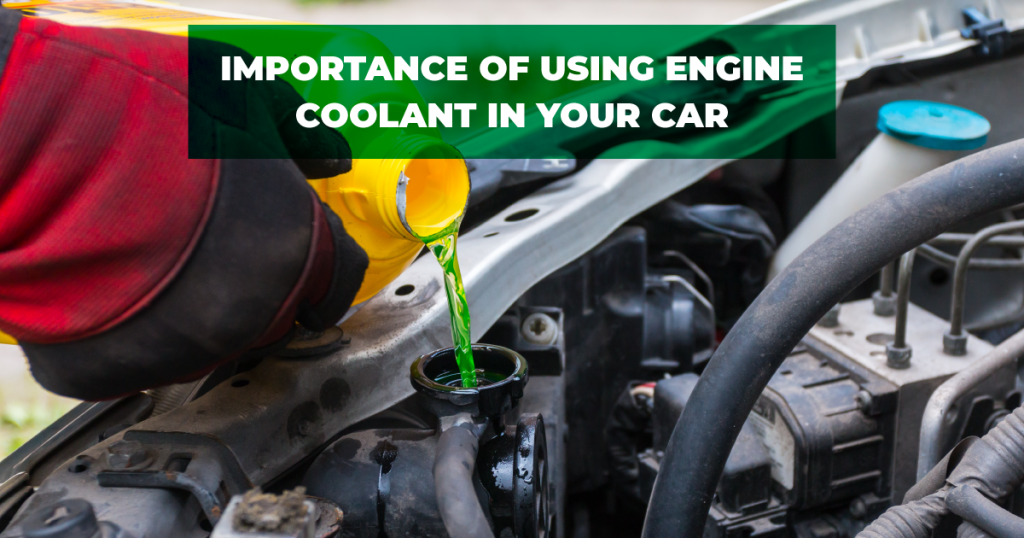What Is Engine Coolant?

Engine coolant is a liquid that is added to the car engine to ensure that the water in the vehicle’s radiator does not freeze during the cold season or boil when it is hot. It also ensures that your car’s performance is top-notch.
It also has the capability to also raise the boiling point of the engine coolant in order to prevent it from overheating. Not to mention it can also protect your engine from corrosion, aid heat transfer and prevent scales from building up.
Locally we have several types of coolants in the market. Some specified by OEMs (Original Equipment for Manufacturers) as well as those manufactured locally by oil companies.
Concentrations Of Coolant

There are concentrated forms, as well as readily mixed. Readily-mixed versions can be used in your vehicle for top-ups and replacements straightaway.
If you buy the concentrated form of coolant, it has to be diluted with water before it is used. This would often be around 50% concentrated coolant with around 50% water. However, this can differ, and it is important to check the instructions.
In standard weather conditions, water that has been mixed with corrosion inhibitors would be enough to keep the engine cool and to supply heat to the car.
Coolant degrades fast and loses its abilities. Therefore, it is advised that one flushes the radiator every 6 months so that it protects the vehicle from overheating and corrosion leaks in the radiator. For some vehicles, it is supposed to be after every 48,000 Kilometres.
Before you change the coolant in your car, it’s important to check your vehicle’s manual. Alternatively, you can visit your trusted service centre or mechanic for advice on the best type of coolant for your car. They can also perform a pressure test on your cooling to ensure there are no leaks from the pipes. The test will also establish whether the water pump is working properly.
Conclusion
This can be done during minor or major service. It is very important to ensure that your car cools efficiently. This applies to all cars and most specifically to high performance and turbocharged vehicles (both diesel and petrol).
